- Home
- Melody Carlson
River's Song - The Inn at Shining Waters Series Page 6
River's Song - The Inn at Shining Waters Series Read online
Page 6
"So many Indians went that route. And I don't blame them a bit. In fact, I blame the white man." Hazel scowled as she put her glasses back on.
"You do?"
"Of course. Thanks to assimilation," she said the word with disgust, "most Indians were robbed of their language, their art, their culture, their families, their dignity . . . even their lives in many cases—almost everything was stripped away from them. And those who tried to return to the old ways were usually chastised, sometimes by their very own people."
"That's true." Anna remembered how frustrated her mother became over Grandma's return to the old ways . . . how she resented Anna's interest. If not for Daddy, she never would've tolerated any of it.
"And that is what fear and oppression does to people. Such a shame."
Anna simply nodded.
"All I'm trying to do is to preserve what I can while there is still something left to preserve." She frowned. "But I swear it's getting harder and harder to find people who can remember anything. And then—eureka!—you find someone with a memory and that person shuts up tighter than a razor clam."
"It sounds like frustrating work."
She nodded. "And I'm afraid that the true history of the Native American people is going to just disappear altogether. Other than the Hollywood version anyway. And they almost never get that right."
"But they do better than cartoons." Anna winced to think of some of the images her own daughter had seen and laughed at on Eunice's television. Even when Anna attempted to set Lauren straight, it was useless with Eunice around to defend her granddaughter's sense of humor.
"You're probably right. I don't watch much television, but I have seen some degrading advertisements using Indian images as comical characters."
"Why is that, I wonder?"Anna frowned. "Why, in this enlightened age of science and technology, would an Indian still be the brunt of a joke?"
"That's a very good question." Hazel reached for a little notebook, writing something down. And now she brightened." But when I saw you out here today, with your glossy black braids and your lovely dugout canoe, well, I suppose I thought I'd finally gotten lucky."
"How so?"
"You just looked like the real thing to me." Her gray eyes grew wide. "Do you know that for an instant I thought you were an apparition or ghost?"
Anna laughed. "I'm not ready for that yet."
Hazel leaned forward in her boat, peering curiously at Anna. "You are very beautiful, you know. You would photograph nicely."
Anna frowned.
"Oh, dear, there I go again. I probably sound like a silly tourist." Hazel laughed. "Again, you'll have to excuse my enthusiasm. Forgive me."
"As long as you don't start snapping photos of me."
Hazel patted a bag at her feet. "I do have a camera, but I wouldn't dream of taking a picture without your permission.And now I assume that since your mother lived like a white woman, you were raised as a white child and you probably know next to nothing about your Native American heritage."
Anna straightened her spine, holding her head high. "Don't be too sure of that."
"Really?" Hazel leaned over so far that Anna expected her to topple out of her boat. Hopefully the old woman could swim." Why do you say that?"
Anna thought carefully about her response. Part of her disliked this woman's intense and intrusive curiosity. Really, it bordered along rudeness and almost reminded her of her pushy mother-in-law. But another part of Anna respected what it seemed this woman was trying to accomplish—to preserve some authentic Indian history. Still . . . she was unsure.
"Do you know anything about your ancestors?" Hazel persisted.
"My mother's mother, my grandmother, was Siuslaw. And her mother as well. My great-grandmother was born here on the river and lived a normal childhood. But as a young woman she was forced to the reservation. She was with child at the time. My grandmother was later born on the reservation. I understand that in itself was rather unusual since most of the people died from disease or starvation. My grandmother's father was killed for trying to find food for his family."
Hazel looked surprised, perhaps more by the fact that Anna was telling her things than by the actual information. "You're referring to the Siletz Reservation in the mid to late 1800s."
"Yes. And unlike many of her people, my great-grandmother actually survived the atrocities and returned on foot, walking back down the beach from the reservation with her child. She and her sister somehow claimed this land where the store and our home are located. And now that land . . . it belongs to me."
"That land actually came from an Indian allotment? From the government?" Hazel looked astonished. "And you still have the same land?"
"I have my grandmother's half of it. I understand that it was originally eighty acres, split between my great-grandmother and her sister. The other half was sold long ago."
"That is most unusual that you still have possession of allotment land."
"It isn't something my parents, particularly my mother, ever spoke of. However, according to the lawyer, the land had legally belonged to my mother after her mother passed."
Hazel nodded. "That makes sense."
"And although my grandmother and my mother went through assimilation, as you put it, my grandmother returned to her old ways, the ways of her ancestors."
"Really?" Hazel looked like she was about to burst now. "Did she teach you any of the traditions of her elders?"
"She taught me things that she wanted me to know." A bit of current was taking the canoe back downriver now, as if to gently nudge Anna home.
"What sorts of things?" Hazel maneuvered her bulky rowboat closer to Anna, as if fearful that Anna might slip away.
"Lots of things." Anna picked up her paddle and began to gently row, going with the current, downriver, past the log barges, back toward the house. She wasn't sure why, but she just felt the need to move. She wanted to get her feet back onto the ground. Onto her own land—her own land. Those words seemed to reverberate with her as she slowly rowed. Truly, the forty acres on the river belonged to her now. It was her own land. The attorney in Florence had said so.
Hazel continued to follow. With her boat like an awkward goose trailing a sleek mallard, she continued to pelt Anna with questions. But Anna refrained from answering. It was as if her grandmother was cautioning her. Go carefully. Do not be reckless with your knowledge. Take your time. And so she did.
7
Back at her own dock, Anna carefully climbed out of her canoe. Holding onto the rope, like a leash on a dog, she walked her canoe next to the dock, leading it to the shore. Pulling it out of the water, she dragged the canoe up onto the shore so that even if the tide rose high, the River Dove would be safe.
"Anna, dear," Hazel called from where she'd paddled her rowboat right up to the dock. Still sitting in the boat, she looked hopeful, expectant. "I'm sorry if I frightened you away in my exuberance.
"Don't worry. I'm not afraid,"Anna called back as she returned to the dock. Shoving her hands into the pockets of her father's old trousers, she squinted into the sun now, trying to decide what to do about this stubborn woman. What would Grandma Pearl do? She recalled the time, not long before Grandma Pearl passed, when Daddy brought home a man in a tweed suit, some sort of scholar from back East who wanted to use a machine to record Grandma's stories. Anna and Daddy sat in the shadows of Grandma Pearl's smoky little cabin, listening as the man began to question Grandma Pearl about her age and history and such. But when this man learned that, as a girl, Grandma had been baptized into the Christian faith, "he turned off his fancy machine. "The old woman's stories are not ethnically accurate now," he told them with disdain. "They will have been tarnished with Western religious undertones. Her words have lost their authenticity." Then he packed up his machine and demanded to be taken back to town.
Grandma Pearl had been hurt and confused by the man's words. When she asked Daddy to explain the meaning, he told her in simple terms that the man questioned the validity of her sto
ries. That's when she became angry. "My stories are the stories of my people and they are true. I would not lie." She had looked at Anna then, cupping Anna's chin in her bony fingers as she stared into her eyes with an intensity that Anna could still feel burning inside her today. "It is through you my stories live, child. I write them on your heart." Anna sighed. Where were those stories now?
"I know I can come on too strong," Hazel said abruptly.
Anna turned back to the old woman, almost surprised to see she was still there, still waiting patiently in her little rowboat, her hands on the oars, looking up with a hopeful almost childlike expression. Her glasses had fogged up again.
"My father always told me that my enthusiasm would get me into trouble," she said a bit woefully. "And I must admit that it has from time to time. But enthusiasm has its benefits too. In fact, it has helped me to reach this stage in life. Not many women, especially those born in the previous century such as I was, have achieved their doctoral degrees. I plan to have mine by winter. Then you can address me as Dr. Hazel Chenowith." She chuckled as if this was amusing.
Anna considered this. To be fair, it was rather impressive. Anna knew few women with that much education. She herself had only made it through one semester of college and she never even took her last final exams. Oh, it was true that she read—almost insatiably. Just one more thing her mother-inlaw liked to tease her about. However, Anna felt it was her only way to enlarge her world, and the small public library in Pine Ridge had been a welcome refuge from Eunice's sharp tongue and constant complaining.
"Why are you so interested in Indians?" she asked Hazel." Specifically the Siuslaw?"Anna watched her carefully as she answered, almost as if this was a test.
"Oh, didn't I mention it? My grandfather was half Suquamish and that makes me one-eighth. Of course, I never heard a word about this until I was a grown woman. Even then, my mother—it was on her side—denied it a few times. But I did my own research and discovered that it was actually true. Suquamish means "clear salt water." My ancestors, similar to yours, were coastal, dwelling near the Puget Sound in Washington. They are most famous for their Chief Seattle."
"Of course, I've heard of him."
"You and plenty of others too. When it came time to do my dissertation, I found that numerous academic papers and books had already been written on the Suquamish and Chief Seattle. Information on my people isn't nearly as scarce and untraceable as it is with yours."
"Why do you think that is?"
"It has to do with geography. This area, the Siuslaw region, was very difficult for early settlers to get into. With the rugged Coastal mountains on one side and no easily accessible port on the other side—since the jetties around the river weren't in place back then, your people were somewhat protected, at least for a while. As you probably know, when the white man finally did get here, in numbers, things changed quickly."
Anna said nothing now, just studied Hazel, trying to discern her true motives.
"Perhaps that still doesn't answer your question . . . why I chose this topic. Because I'm completing my doctorate through the University of Oregon, I wanted to study a tribe nearby. Also, I absolutely love this part of the country—where river meets ocean with forest and mountains nearby. I find it enchanting. Don't you?"
Anna nodded.
"So here I am. Although I must admit it's been most frustrating trying to connect with people who might be of help. I was about ready to give up." She looked longingly at Anna now. "Is there any way I could possibly entice you to speak to me, just for a bit? You must understand that anything you tell me will be highly valued and esteemed and I will see that it is well preserved in history—something for your children and grandchildren and all the future generations of your family to look back upon someday."
Although she liked the sound of that, Anna shook her head." I'm afraid my daughter has as much interest in Indian history as my mother did. However. . ." She remembered her grandma's baskets on Mother's coffee table . . . what did that mean?
"However?"
"Well . . . perhaps I was wrong about my mother. I wonder if she was starting to appreciate some of the old ways after all." Anna smiled at Hazel now. "Would you like to see something?"
"Oh, yes!" Hazel was already fumbling for the rope. "Most definitely yes!"Anna knelt down, helping to secure the boat to the dock, and extending her hand to steady the old woman, she helped her climb out. "I'm just so pleased!" Hazel exclaimed as they walked down the dock. "So very pleased and excited!"
Anna had to admit that Hazel's enthusiasm was rather contagious. As she led the eager woman up to the house, Anna felt a solidness inside of her, as if she was doing the right thing. She realized that Grandma Pearl had entrusted her with something precious, something Anna didn't fully understand or perhaps even completely respect . . . as of yet. But suddenly it felt very important to do whatever she could to preserve her grandmother's stories and traditions. It didn't matter that Lauren, or even any future generations, might have no interest in the old ways of their ancestors. Anna realized that she had interest. She was doing this for Grandma Pearl . . . and for herself.
"Oh, my! Oh, my!" Hazel held the first basket in her hands as gently as if she were holding a freshly hatched bluebird." This is absolute perfection. Beautiful." She went on to describe the design and the materials with such expertise that Anna's confidence in her grew.
"I made this one myself." Anna held up the sewing basket.
"You made this?" Hazel peered at her through her slightly fogged lenses. "Yourself?"
"My grandmother taught me."
"Exquisite." She carefully set the basket back on the coffee table. "Do you know who taught your grandmother?"
"Her mother, of course."
"Of course." Hazel nodded, taking this in.
"Please, sit down."
"Yes, thank you, don't mind if I do." Primly, Hazel sat on the edge of the couch, folding her hands in her lap and watching Anna with an uncertain expression.
"Would you like something to drink? I haven't much to offer. Water, milk . . . or I could make coffee or tea."
"Oh, I don't want to put you to any trouble." She was wiping her glasses again.
"It's no trouble."
"Water would be lovely."
Anna filled them each a glass and returned, handed one to Hazel, and then sat down in the old rocker adjacent from the couch. It had been Daddy's favorite chair and just sitting in it now brought back a wonderful sense of him. She could almost smell the tobacco from his pipe.
"Thank you," Hazel murmured, taking a dainty sip. Then she looked up at Anna with her mouth partially open, looking rather strange. Almost as if she were unwell.
"Are you all right?"Anna leaned forward.
"Oh . . . yes, I'm perfectly delightful, dear." She made a sheepish sort of smile. "I think I have been rendered nearly speechless. And, for me, well, that is highly unusual."
Anna chuckled. "I see."
Hazel pointed to the baskets on the coffee table. "Those baskets—oh, my—they are like discovering a treasure chest." She peered intently at Anna. "Do you get my meaning?"
"Not exactly."
"So unusual . . . so exquisite." She shook her head. "I am almost afraid to handle them."
"Oh, they're very well made. They can even be used for—"
"Yes, yes, I don't doubt that. It's just that they are so rare— more valuable than precious jewels—at least in my opinion. They should probably be in a museum."
"Oh." Anna frowned.
"Not that I'd try to take them from you, dear. I'm just saying—"
"I appreciate that."
"You will take good care of them, won't you?"
Anna smiled. "Yes, of course. They're like a treasure to me too."
Hazel sighed. "That's a comfort. Thank you for allowing me to see them."
"My grandmother told me that her mother and aunt taught her how to make these kinds of baskets while they were on the reservation."
"Oh? I'm surprised that was allowed."
"She did mention that they did it secretly." Anna smiled. "In fact, when Grandma Pearl taught me, we did it in secret too."
"So your mother wouldn't know?"
Anna nodded.
"You were very fortunate to have a grandmother like that, Anna."
"I'm beginning to appreciate that more and more."
"I'm curious about your canoe. Would you mind telling me about it?"
So Anna told her about how it was won in a card game and Hazel laughed. "I have no idea how old it is, but I think my grandma's second husband, Crazy Bob, died about ten years before I was born. So that means it's been in our family for close to fifty years."
Hazel looked confused. "Fifty years? How old are you, if you don't mind me asking?"
"I'll be forty this fall."
Hazel looked shocked. "No, that's not possible. I thought you were a girl when I first saw you. Even now I would've guessed you to be in your twenties."
Anna chuckled. "Well, thank you! But I have a daughter who would beg to differ with you. She is always telling me how old—and how old-fashioned I am." Anna flipped one of her braids. "Although I don't usually wear my hair like this."
"But, really, you look quite young for almost forty." Hazel smiled. "Not that forty is so old, mind you. It's been nearly twenty-five years since I was forty and I'm still fairly spry if I do say so myself. I wouldn't be surprised if I was still around forty years from now. My grandmother recently passed and she was 103."
Anna nodded, absorbing this. "You're making me feel almost young."
"Well, you are young!" She laughed. "And don't let anyone convince you otherwise."
"I feel like I can trust you,"Anna told her. "And not just because of your flattery."
"I am not a flatterer, my dear. I simply speak my mind. Besides being given over to exuberance, I am also known as a highly opinionated woman. Some people can simply not abide me." She shook her head. "Including my ex-husband, Herbert."
"Ex-husband?"
She nodded firmly. "Yes. I am a divorcée. I have been so for nearly thirty years now and am not the least bit ashamed of it. Never married again. Not that I wouldn't consider it, if the right man came along."

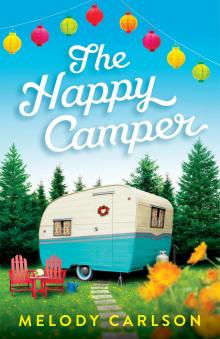 The Happy Camper
The Happy Camper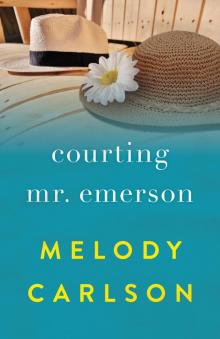 Courting Mr. Emerson
Courting Mr. Emerson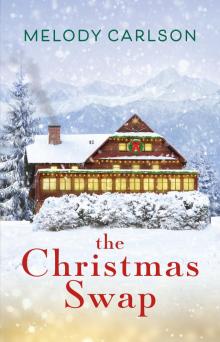 The Christmas Swap
The Christmas Swap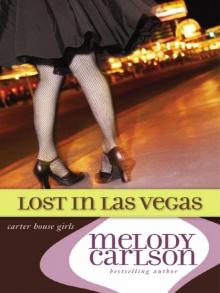 Lost in Las Vegas
Lost in Las Vegas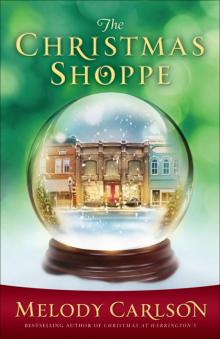 The Christmas Shoppe
The Christmas Shoppe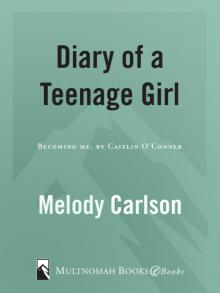 Becoming Me
Becoming Me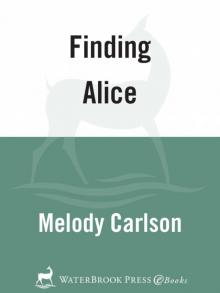 Finding Alice
Finding Alice Payback
Payback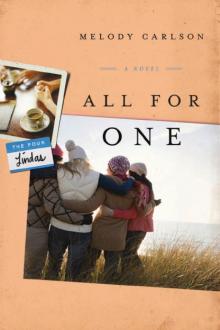 All for One
All for One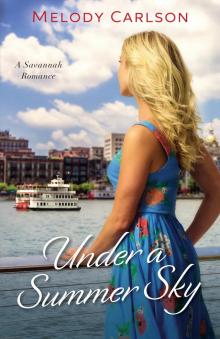 Under a Summer Sky--A Savannah Romance
Under a Summer Sky--A Savannah Romance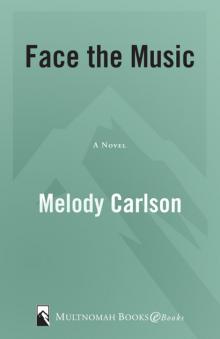 Face the Music
Face the Music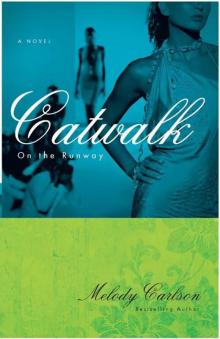 Catwalk
Catwalk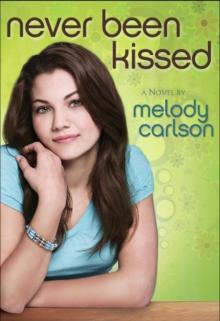 Never Been Kissed
Never Been Kissed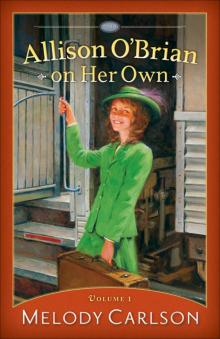 Allison O'Brian on Her Own
Allison O'Brian on Her Own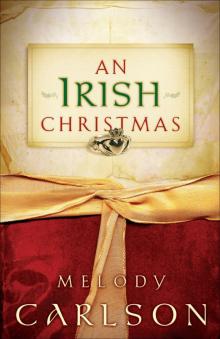 An Irish Christmas
An Irish Christmas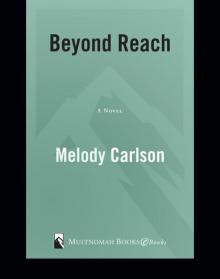 Beyond Reach
Beyond Reach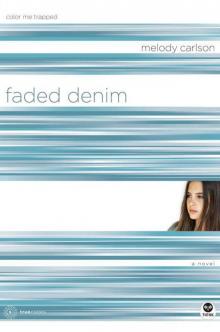 Faded Denim: Color Me Trapped
Faded Denim: Color Me Trapped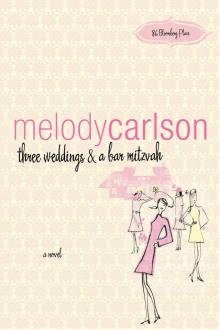 Three Weddings and a Bar Mitzvah
Three Weddings and a Bar Mitzvah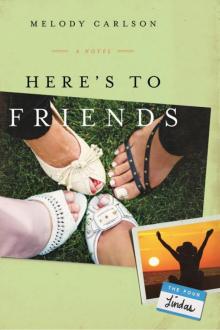 Here's to Friends
Here's to Friends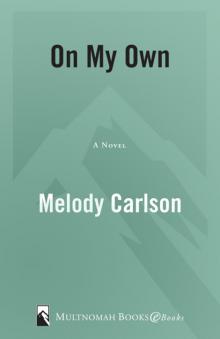 On My Own
On My Own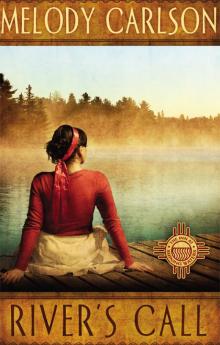 River's Call
River's Call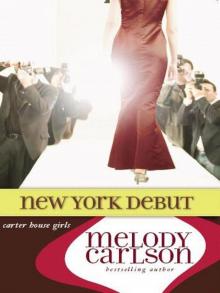 New York Debut
New York Debut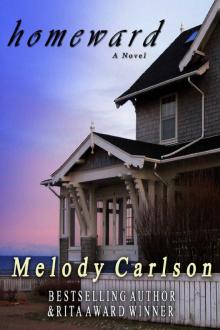 Homeward
Homeward Love Finds You in Sisters, Oregon
Love Finds You in Sisters, Oregon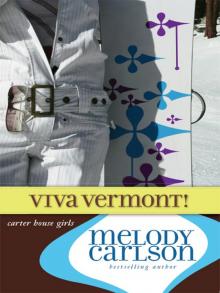 Viva Vermont!
Viva Vermont!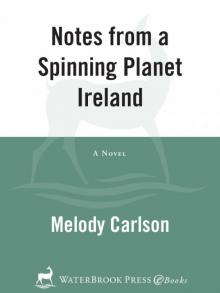 Notes from a Spinning Planet—Ireland
Notes from a Spinning Planet—Ireland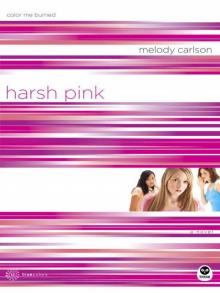 Harsh Pink with Bonus Content
Harsh Pink with Bonus Content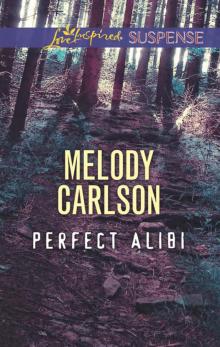 Perfect Alibi
Perfect Alibi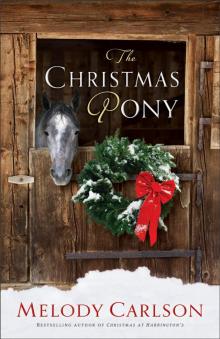 The Christmas Pony
The Christmas Pony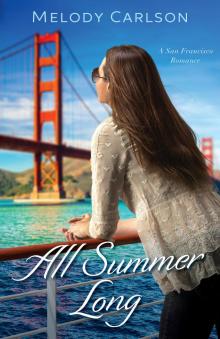 All Summer Long
All Summer Long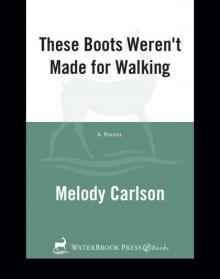 These Boots Weren't Made for Walking
These Boots Weren't Made for Walking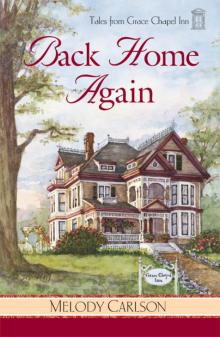 Back Home Again
Back Home Again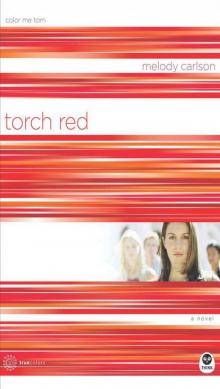 Torch Red: Color Me Torn with Bonus Content
Torch Red: Color Me Torn with Bonus Content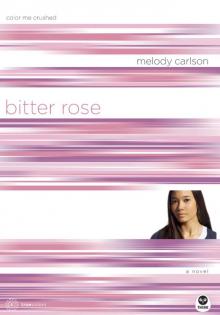 Bitter Rose
Bitter Rose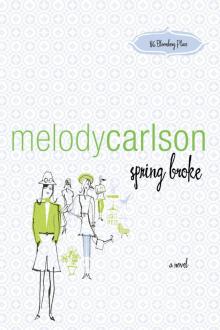 Spring Broke
Spring Broke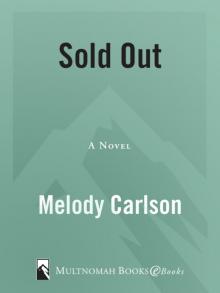 Sold Out
Sold Out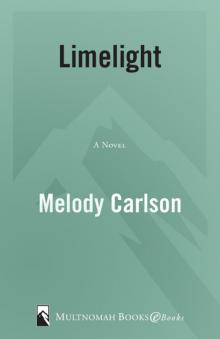 LimeLight
LimeLight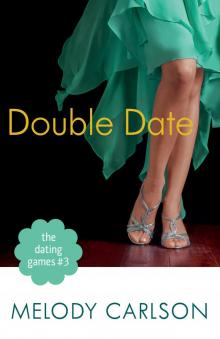 Double Date
Double Date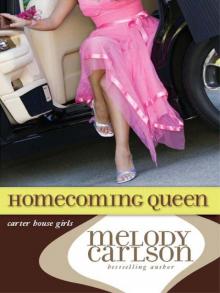 Homecoming Queen
Homecoming Queen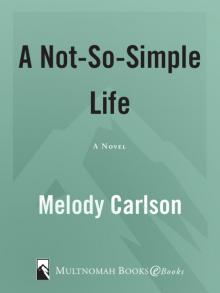 A Not-So-Simple Life
A Not-So-Simple Life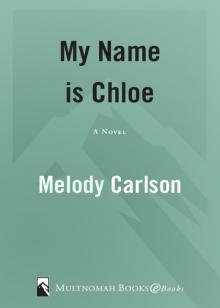 My Name Is Chloe
My Name Is Chloe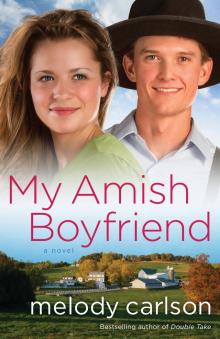 My Amish Boyfriend
My Amish Boyfriend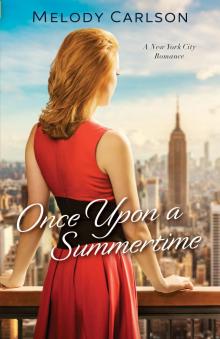 Once Upon a Summertime
Once Upon a Summertime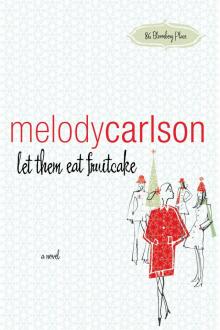 Let Them Eat Fruitcake
Let Them Eat Fruitcake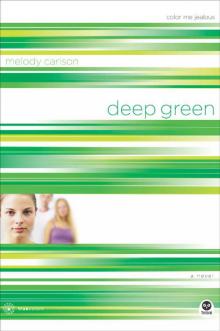 Deep Green: Color Me Jealous with Bonus Content
Deep Green: Color Me Jealous with Bonus Content The Joy of Christmas
The Joy of Christmas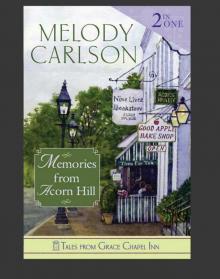 Memories from Acorn Hill
Memories from Acorn Hill Premiere
Premiere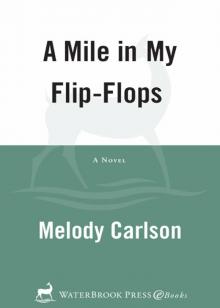 A Mile in My Flip-Flops
A Mile in My Flip-Flops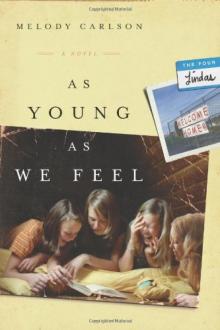 As Young As We Feel
As Young As We Feel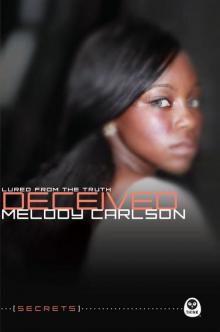 Deceived: Lured from the Truth (Secrets)
Deceived: Lured from the Truth (Secrets)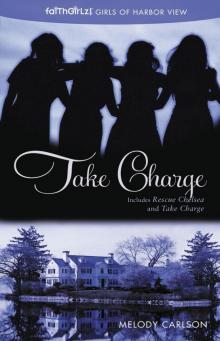 Take Charge
Take Charge Road Trip
Road Trip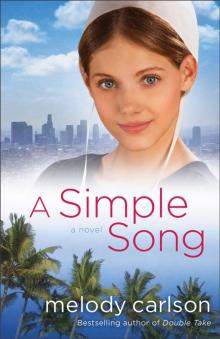 A Simple Song
A Simple Song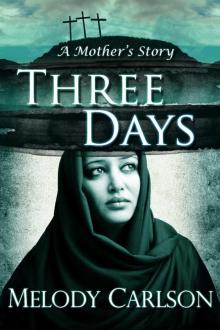 Three Days: A Mother's Story
Three Days: A Mother's Story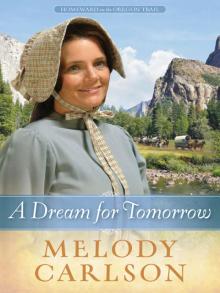 A Dream for Tomorrow
A Dream for Tomorrow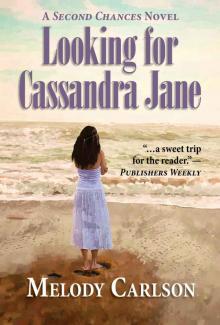 Looking for Cassandra Jane (The Second Chances Novels)
Looking for Cassandra Jane (The Second Chances Novels)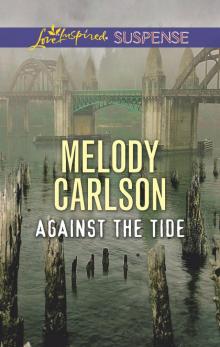 Against the Tide
Against the Tide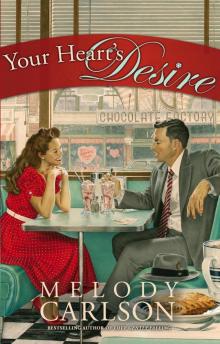 Your Heart's Desire
Your Heart's Desire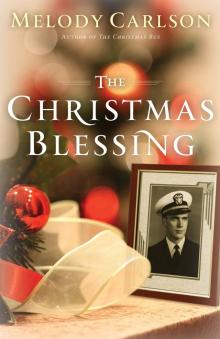 The Christmas Blessing
The Christmas Blessing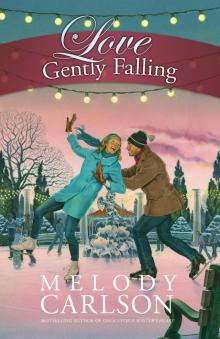 Love Gently Falling
Love Gently Falling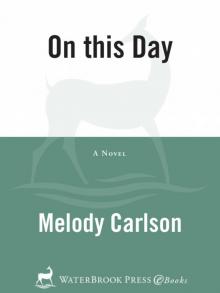 On This Day
On This Day The Christmas Joy Ride
The Christmas Joy Ride Ciao
Ciao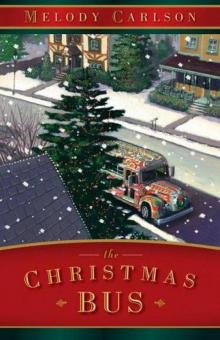 The Christmas Bus
The Christmas Bus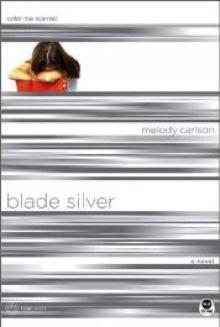 Blade Silver: Color Me Scarred
Blade Silver: Color Me Scarred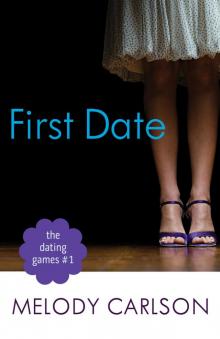 Dating Games #1
Dating Games #1 Double Take
Double Take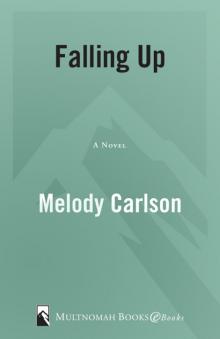 Falling Up
Falling Up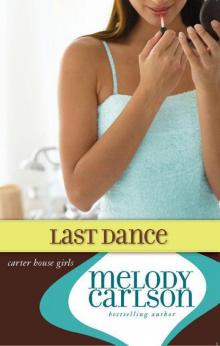 Last Dance
Last Dance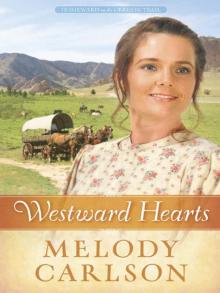 Westward Hearts
Westward Hearts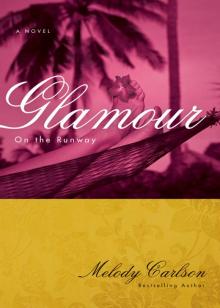 Glamour
Glamour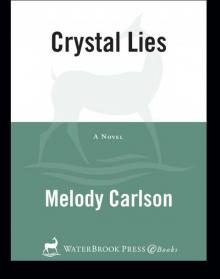 Crystal Lies
Crystal Lies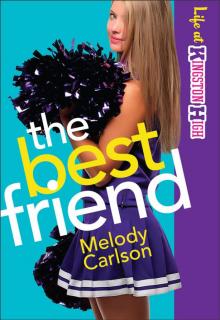 The Best Friend
The Best Friend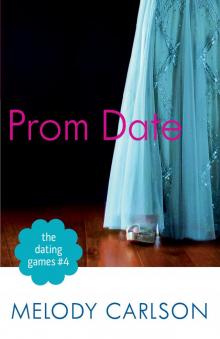 Prom Date
Prom Date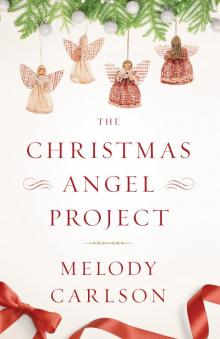 The Christmas Angel Project
The Christmas Angel Project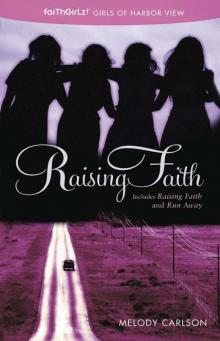 Raising Faith
Raising Faith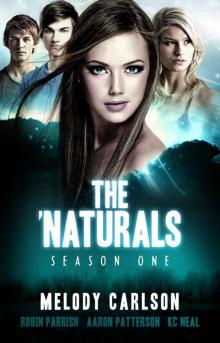 The 'Naturals: Awakening (Episodes 1-4 -- Season 1) (The 'Naturals: Awakening Season One Boxset)
The 'Naturals: Awakening (Episodes 1-4 -- Season 1) (The 'Naturals: Awakening Season One Boxset)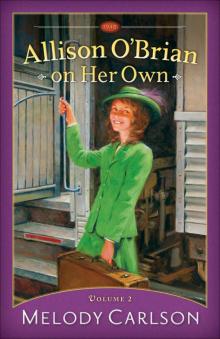 Allison O'Brian on Her Own, Volume 2
Allison O'Brian on Her Own, Volume 2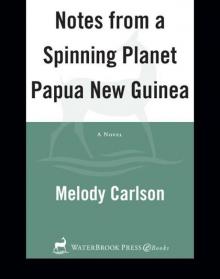 Notes from a Spinning Planet—Papua New Guinea
Notes from a Spinning Planet—Papua New Guinea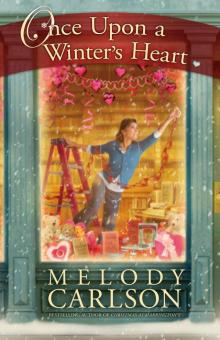 Once Upon a Winter's Heart
Once Upon a Winter's Heart Damaged
Damaged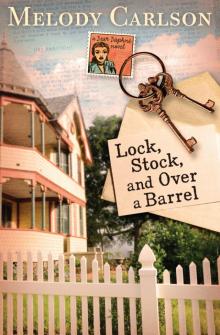 Lock, Stock, and Over a Barrel
Lock, Stock, and Over a Barrel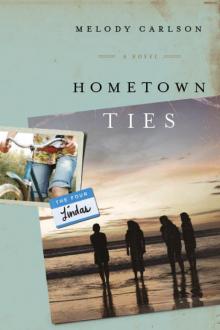 Hometown Ties
Hometown Ties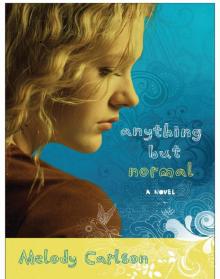 Anything but Normal
Anything but Normal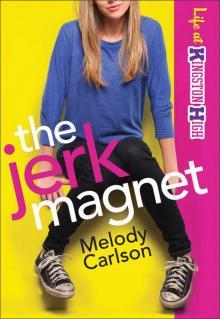 Jerk Magnet, The (Life at Kingston High Book #1)
Jerk Magnet, The (Life at Kingston High Book #1)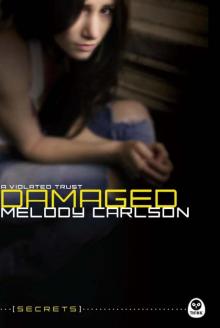 Damaged: A Violated Trust (Secrets)
Damaged: A Violated Trust (Secrets) Fool's Gold
Fool's Gold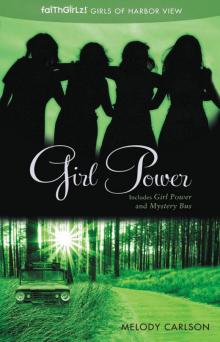 Girl Power
Girl Power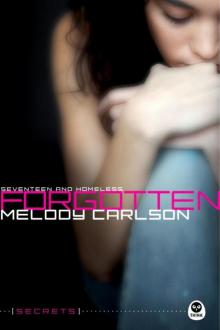 Forgotten: Seventeen and Homeless
Forgotten: Seventeen and Homeless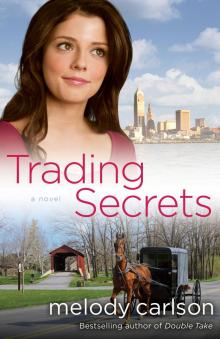 Trading Secrets
Trading Secrets Blood Sisters
Blood Sisters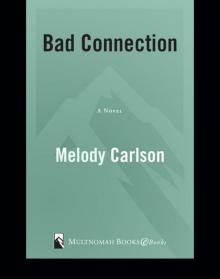 Bad Connection
Bad Connection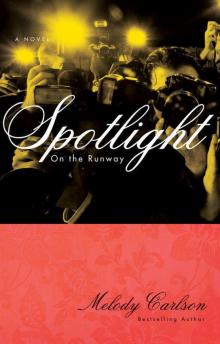 Spotlight
Spotlight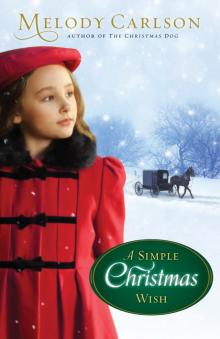 A Simple Christmas Wish
A Simple Christmas Wish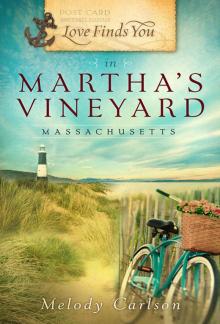 Love Finds You in Martha's Vineyard
Love Finds You in Martha's Vineyard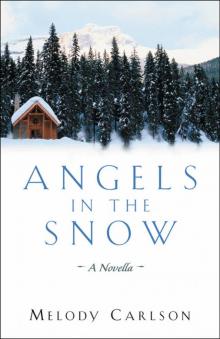 Angels in the Snow
Angels in the Snow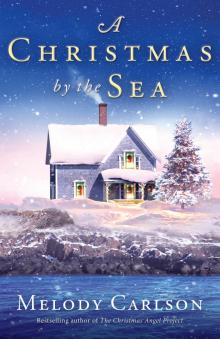 A Christmas by the Sea
A Christmas by the Sea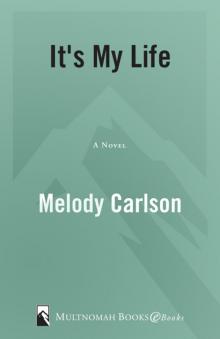 It's My Life
It's My Life Mixed Bags
Mixed Bags The Christmas Dog
The Christmas Dog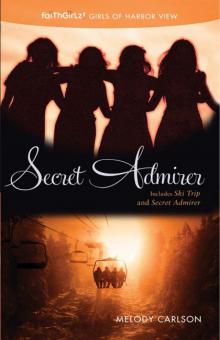 Secret Admirer
Secret Admirer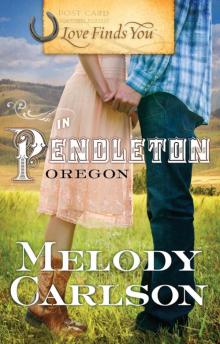 Love Finds You in Pendleton, Oregon
Love Finds You in Pendleton, Oregon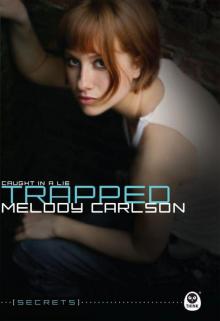 Trapped: Caught in a Lie (Secrets)
Trapped: Caught in a Lie (Secrets)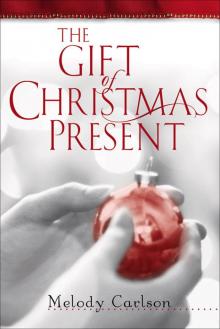 The Gift of Christmas Present
The Gift of Christmas Present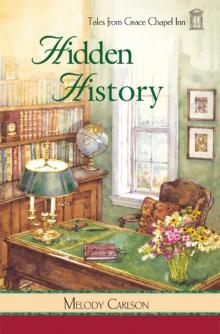 Hidden History
Hidden History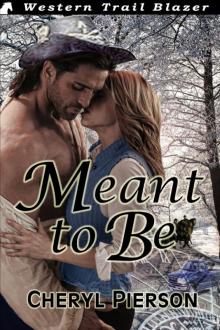 Meant to Be
Meant to Be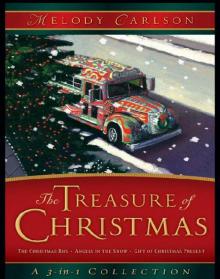 The Treasure of Christmas
The Treasure of Christmas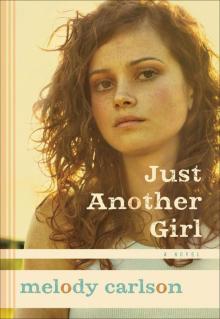 Just Another Girl
Just Another Girl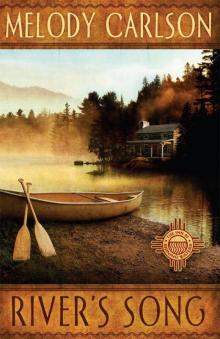 River's Song - The Inn at Shining Waters Series
River's Song - The Inn at Shining Waters Series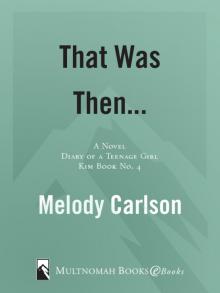 That Was Then...
That Was Then...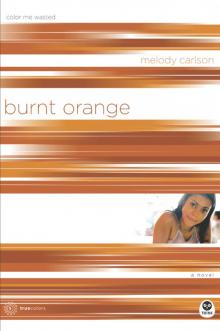 Burnt Orange
Burnt Orange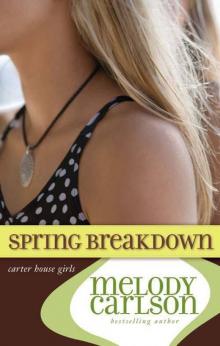 Spring Breakdown
Spring Breakdown The Christmas Cat
The Christmas Cat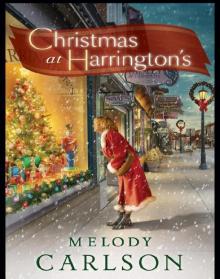 Christmas at Harrington's
Christmas at Harrington's